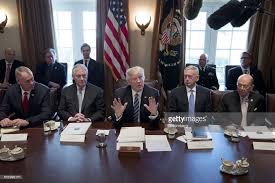Our Founding Fathers established checks and balances that seemed reasonable enough when they drafted our Constitution. The need to limit the power of the President to pardon has become apparent. The only fix is to amend the US Constitution.
Below is a proposed amendment that restricts pardons to extraordinary circumstances, prohibits any president from issuing a pardon for himself, or while the president is temporarily disabled, or in certain stated circumstances where abuse is likely:
JOINT RESOLUTION. Proposing an amendment to the Constitution of the United States regarding presidential pardons.
Resolved by the Senate and House of Representatives of the United States of America in Congress assembled, two-thirds of each House concurring therein,
That the following article is proposed as an amendment to the Constitution of the United States, which shall be valid to all intents and purposes as part of the Constitution when ratified by the legislatures of three-fourths of the several States:
ARTICLE I
SECTION 1. The power of the President to pardon is intended for extraordinary circumstances of mercy for individuals and in the interest of justice for the nation. It is not intended for corrupt purposes to obstruct justice, obscure truth, or offend the Constitution.
SECTION 2. No pardon may issue by the President for the President, or for any president temporarily disabled under Amendment XXV.
SECTION 3. In the following circumstances, no pardon is effective, without the prior consent of the Senate, provided two-thirds of the Senators present concur:
A) The person to receive the pardon has any connection with the President that gives rise to the appearance of impropriety or undue self-interest, such as a family member or friend, or person who has supported or substantially and materially acted on behalf of the President or the President’s family or friend.
B) Before there is a judicial finding, that the person has committed the crime or action, which is the subject of the pardon.
C) The term of the presidency ends, for any reason, within sixty days of the pardon.
SECTION 4. Any pardon may be rescinded upon vote of the Senate, after the pardon has been granted, with the concurrence of two-thirds of the Senators present. To be effective, the Senate rescission must occur within 180 days after this amendment is ratified by the sufficient number of states or the pardon is issued, whichever event occurs later.
SECTION 5. The Congress shall have power to enforce this article by appropriate legislation.
The purpose to the amendment is to make clear that the President may not issue their own pardon. Also, the President may not abuse the constitutional power of Presidential pardon by inappropriately pardoning family, friends or those working on behalf of the president.
If there exists extraordinary circumstances where it is approrpriate to pardon of a friend, family or person working for the president, Senate approval is necessary in those situations.
Presidential pardons shall not thwart the due process of law, before a determination that a law has been violated. For example, when President Gerald Ford pardoned Richard Nixon, he did so before there had been a judicial determination of what laws, if any, had been violated. President Jimmy Carter pardoned those who illegally evaded the Vietnam Conflict , before many/most had been convicted.
Such pardons can obscure the truth and unnecessarily divide a nation. However, in extraordinary situations, such pardons might be appropriate. To protect against abuse, the Senate approval is necessary.
The process of amending the US Constitution is appropriately deliberate, but it can happen relatively quickly. A recent amendment was completed, from start to finish, in just four months. There is great value in starting the process, which can occur easily with a Joint Resolution in Congress. Starting the process helps drive the narrative and shows the Supreme Court how to rule, if any president abuses presidential pardon power before the amendment can be completed.
This amendment can have retroactive effect, so that the Senate may rescind a pardon issued before the effective date of the pardon, so long as the rescission occurs within 180 days after the amendment is fully and finally effective by ratification by a sufficient number of states.
May God bless and protect America


